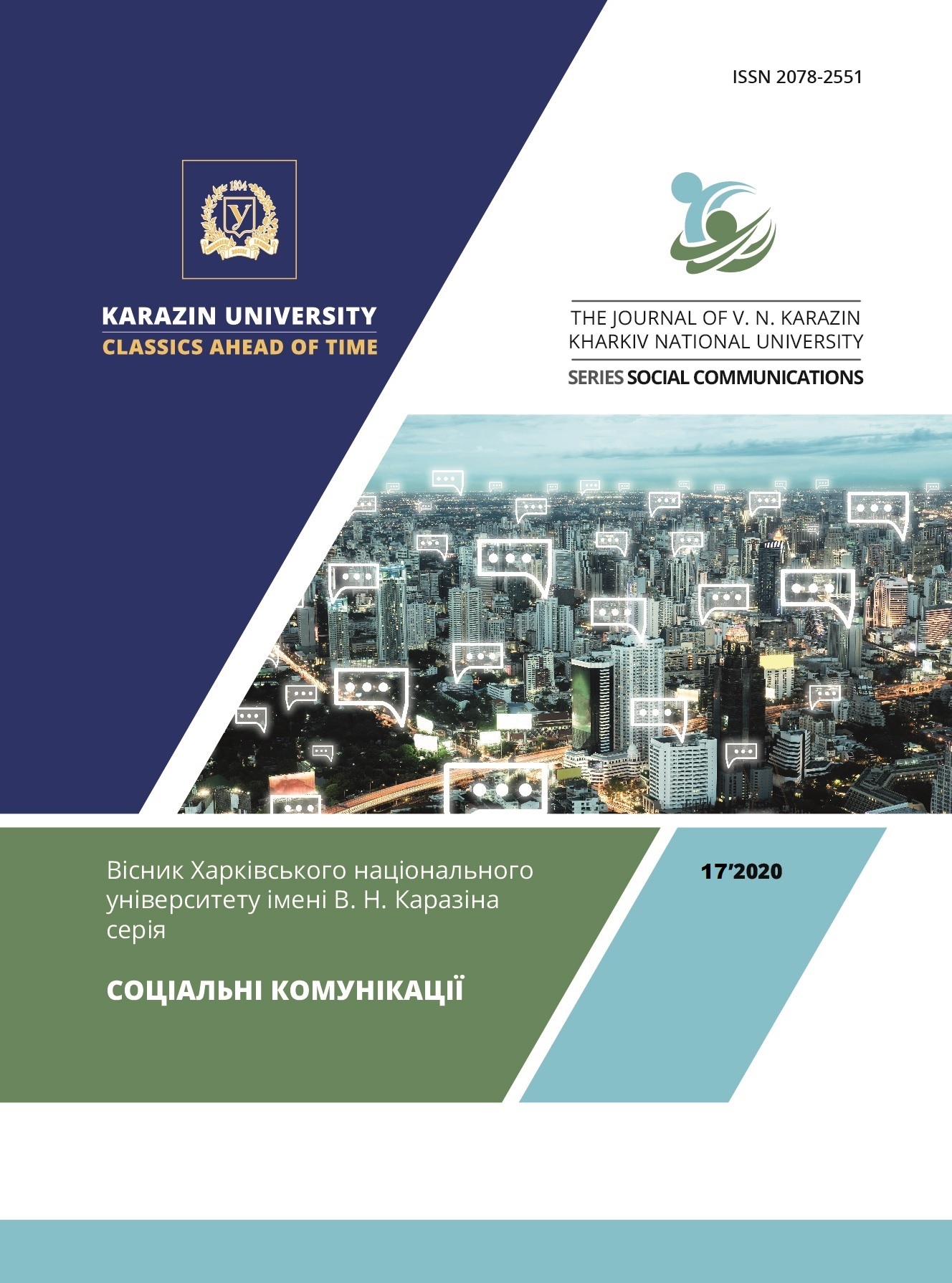The Category of «Truth» in the Systems of Philosophical and Social Communication Categories
Abstract
The article considers the place, role and characteristics of ‘truth’ as a category in the categorial systems of philosophy and social communication. The study is carried out in the framework of the dissertation research that investigates truth as a social communication category of journalism. Based on the preliminary results of the study, this paper aims to identify «category» as the notion of scientific discourse as well as to determine the place of truth in the system of philosophical and social communication categories. The object of the study is truth as a concept, phenomenon and a category. The subject of the research involves categorial features and properties of truth, categorial nature and manifestation of the phenomenon in the systems of philosophical and social communication categories. The study relies on the methods of categorial, comparative and discursive analyses, generalization and synthesis. The results of the preliminary study of «truth», obtained by the author, have enabled identifying of the essential categorial features and characteristics of the phenomenon. The paper provides analysis of the concept of «truth» in the categorial systems of Aristotle, Kant, Husserl, Ingarden, as well as in Marxist-Leninist philosophy. It also considers the causes of «categorial falseness» and its social consequences. From the standpoint of modern philosophy of meta-anthropology, «truth» as a category of transcendence is regarded as a metacategory that determines the authenticity of all things (the category of essence, according to Aristotle). The study describes three basic existential levels of truth alongside with the formal-intentional one, to which artificially formed pseudo-truths and language units belong. It emphasizes that truth as a multidimensional category of existence is reflected in social communications, whereas as a category of transcendence, it finds its reflection in spiritual communications aimed at harmonization of social and personal life. Noting that the category of «truth» is not yet determined in social communications, the author introduces the notions of «spiritual communication» and «spiritual and social communication», the essential basis of which is truth as a category of transcendence, with the motive being its knowledge. The paper underlines the significance of defining truth as a social communication category and its place and role in the system of social communications and social engineering. In conclusion, the author defines truth-based social communication – the category of transcendence and spiritual communication – as «truth-centric» and aimed at harmonizing social relations, personal and social life. Truth-centric communications form the basis journalism, turning it into socially responsible activity, which is especially important in the context of global post-truth.




